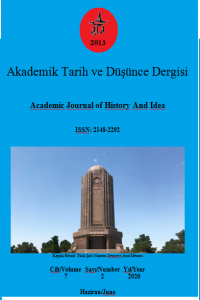Varlığın Ötesi: Heidegger’in Platon’u
Robert J. Dostal, 'Varlığın Ötesi Heidegger'in Platon'u' adlı bu makalesinde Batı Metafizik geleneğinin tümüyle Plâtonculuk olduğunu iddia eden Martin Heidegger'in metafiziğe saldırılarının aynı zamanda Plâtonculuğa bir saldırı olduğunu iddia etmektedir. Dostal'a göre, Heidegger'in Platon yorumları oldukça fazla olmakla birlikte yalnızca bir tek metni, Platon'un Doğruluk Öğretisi, tümüyle Platon'a adanmıştır. Heidegger'in bu metindeki temel savı, Platon'un Greklere özgü açıklık (Unverborgenheit) olarak doğruluk anlayışını bozarak onu uygunluk (adaequatio) olarak doğruluk anlayışına dönüştürmüş olduğudur. Böylelikle Heidegger, modern dünyada açıklık olarak doğruluğun yitirilmiş olduğuna dair iddiasını, bu yitimden Platon'u ve tümüyle Plâtoncu olduğunu iddia ettiği metafizik geleneği sorumlu tutarak gerekçelendirmektedir. Dostal, Heidegger'in geç dönem metinlerinden olan 'Felsefenin Sonu ve Düşünmenin Amacı'nda bu konuda ufak bir taviz verdiğini saptar. Bu taviz, Heidegger'in tek bir cümlede, Platon'da doğruluğun açıklıktan uygunluğa dönüştüğünün savunulamaz olduğuna ilişkin ifadesinde saklıdır. Ancak Dostal, bu tavizin Heidegger'in Platon yorumunda ciddi bir fark yaratamadığını savunmaktadır. Bu çalışmada, Heidegger'in Platon yorumunun onun eserlerinin ünlü dönüş (Kehre) olayı öncesi ve sonrasında yapısal bir bütünlük arz ettiği savunulmakta ve bu yolla eleştirel bir değerlendirilmesi yapılmaktadır. Dostal, bu amaçla çalışması boyunca Heidegger'in çeşitli yapıtlarına dağılmış olan Platon eleştirilerini ayrıntılı olarak incelemekte ve bu eleştirilerinin yapısal bütünlüğünü bazı ciddi gerekçelerle birlikte sunmaktadır.
Beyond Being: Heidegger's Plato
Robert J. Dostal claims that the metaphysical assaults of Martin Heidegger, who claimed that the tradition of Western Metaphysics was entirely Platonism, was an attack on the Platonic at the same time, in his article 'Beyond Being: Heidegger's Plato'. According to Dostal, Heidegger's interpretations of Plato are so much but only the one text that 'Plato's Doctrine of Truth', is entirely dedicated to Plato. The main argument in Heidegger's text is that Platon has transformed the Greeks' authentic conception of truth as openness (Unverborgenheit) into the correspondence theory of truth (adaequatio). Thus, Heidegger justifies his claim that truth as openness is lost in the modern world by holding responsibility to Plato and the metaphysical tradition that to be entirely Platonic. Dostal finds that Heidegger makes a small concession in the matter of 'The End of the Philosophy and the Task of Thinking' that which is one of his late texts. This concession is hidden in the single statement in Heidegger says that for Plato it is indefensible that turning truth as openness to truth as correspondence. But Dostal argues that this concession can not make a serious difference in Heidegger's interpretation of Plato. In this work, Heidegger's interpretation of Plato is argued to be a structural unity before and after the famous turn (Kehre) event of his works, and a critical evaluation is made in this way. For this purpose, Dostal examines throughout his work, Heidegger's criticisms of Plato that scattered to his various works and presents the structural integrity of these criticisms together with some serious justifications.
